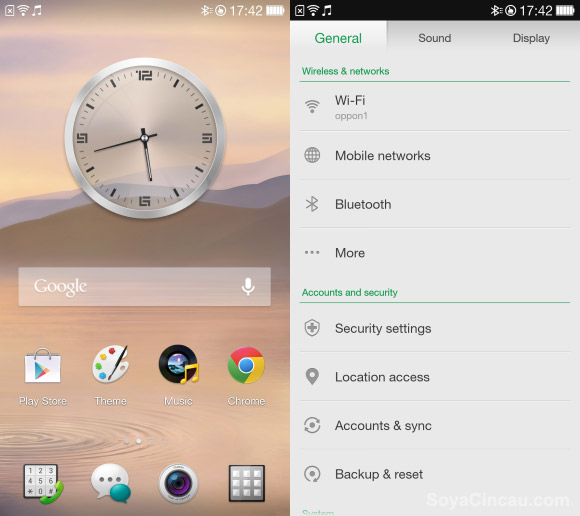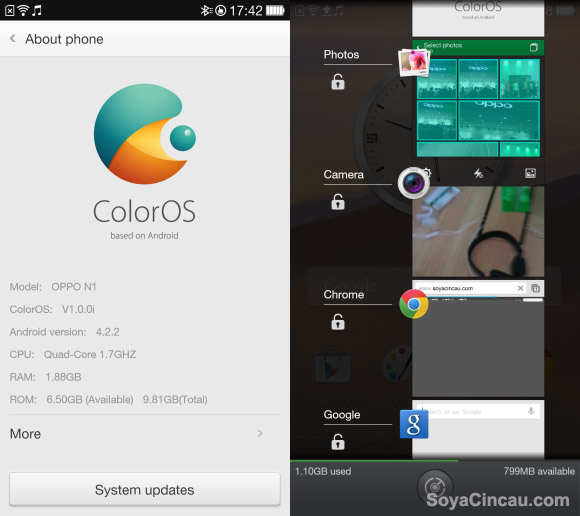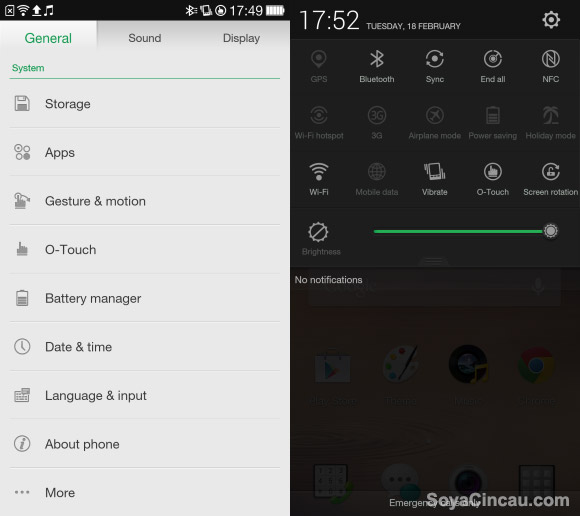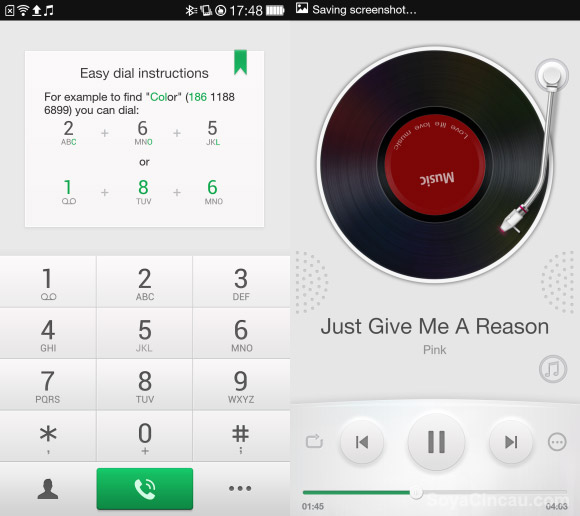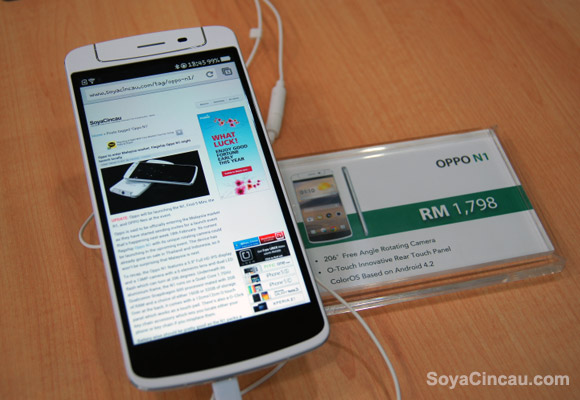Oppo Malaysia made its debut today by launching its high end Oppo N1 smart phone. With smart phones being a photography companion, Oppo has focused its efforts to ensure that the N1 is selfie-generation compliant with its rather unique 13MP swivel camera that can rotate up to 206 degrees. According to Oppo, they invested a painstaking 18 months of R&D to develop the N1 which is longer than the usual claimed 9-12 months R&D duration to release a phone. According to their presentation today, the swivel mechanism is tested to withstand over 100,000 rotating tests. That’s equivalent of rotating the camera 40 times a day for 7 years.
The N1 comes with a rather large 5.9″ IPS display that pushes a Full HD resolution of 1920×1080. This gives a pixel density of 373 ppi (pixels per inch) which is similar to the HTC One Max. Underneath, it runs on a proven and capable 1.7GHz Quad-Core Snapdragon 600 processor with 2GB of RAM which is the same unit found on the HTC One.
For storage, the unit that we are getting here comes with 16GB of storage and sadly there’s no microSD slot if you need to expand more. For those that require a long lasting phone would not be disappointed as the N1 packs a rather large 3,610mAh battery. That’s even more than the Galaxy Note 3 which comes with a 3,200mAh capacity battery.
Read on to find out our first impressions and check out our hands-on video below.
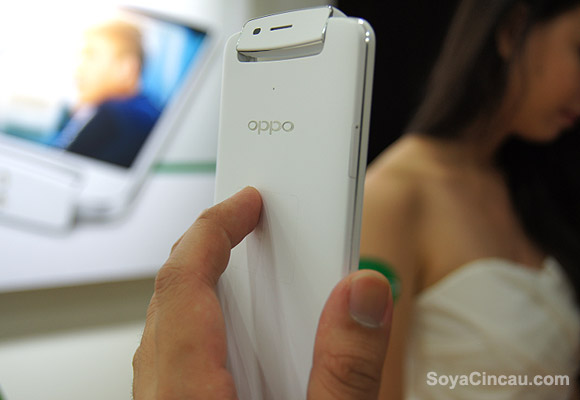
In the hands, the Oppo N1 is a solid device. The back which is made of ceramic material is nice to touch and you’ll be happy to know that it won’t be a fingerprint magnet. While users demand a large screen device, this often leads to bad single hand usability. To address this, the Oppo N1 comes with O-Touch touchpad with allows you to control vital functions with your index finger. So when you take selfie shots, you can tap and hold the back of the phone for 0.5 sec to take a shot. This means no more struggling to press the on-screen camera shutter button while holding this large device. The O-Touch also doubles up as a navigation touch pad so you can browse through home screens or photo gallery by just swiping with your index finger.
The Oppo N1 gesture feature continues at the front. With the screen being in sleep mode, you can double tap on the glass to wake the device. If you think that’s basic, you can even launch a camera by drawing a circle and switching on the LED as a flashlight by drawing a V on the glass. That’s not all as you can further customise the gestures to launch your preferred apps with your own custom gestures as well.
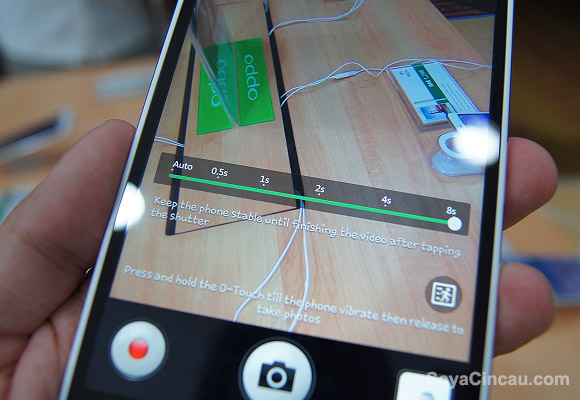
Going back to the camera, the 13MP sensor comes with a f/2.0 aperture and a 6 element lens. For night shots, you can take long exposure photos thanks to its 8 second slow shutter speed. Since the camera is the key highlight, Oppo says that there are a total of 6 ways of starting up the camera which includes both hardware and software triggers. If you need to take a selfie instantly, rotating the camera to the front will automatically launch the camera app.
The Oppo N1 also comes with optional accessories such as O-Click. O-click is a keychain like device which lets you locate the N1 if you misplaced it and it also works as a remote camera trigger when taking group photos. If you lose your keys, the O-Click also works the other way round as well. The price of the O-Click is not confirmed yet but it should be less than RM200. According to an Oppo rep, the O-Click battery could last for a year if it is used sparingly.
Out of the the box, the Oppo N1 runs on Android 4.2.2 Jelly Bean but comes with Oppo’s own ColorOS UI. It uses microSIM and unfortunately it lacks 4G LTE. In terms of dimensions, the Oppo N1 is 9mm thick and it tips the scale at 219 grams. At RM1,798, the Oppo N1 is an alternative worth considering if you’re looking for a large screen device. The hardware, unique camera and interesting gesture features make this a compelling device for less than RM1,800. If you demand something more powerful with 4G LTE support, the Oppo Find 7 which is launching in China next month could be the device worth waiting for.
Oppo N1 Hands-On Video
Oppo N1 Photos
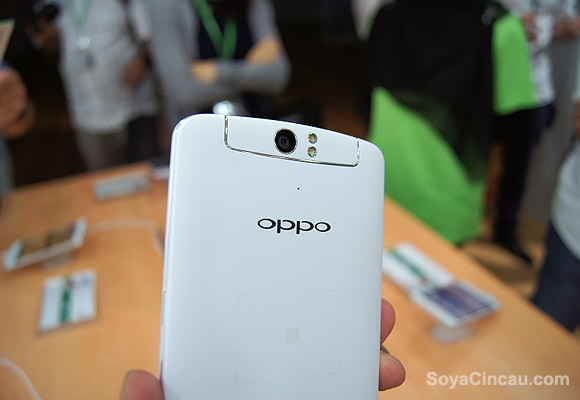
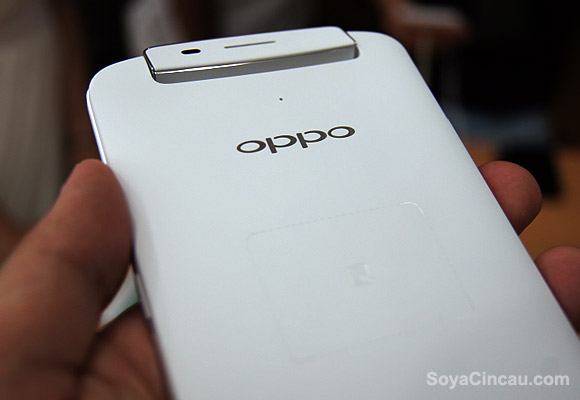
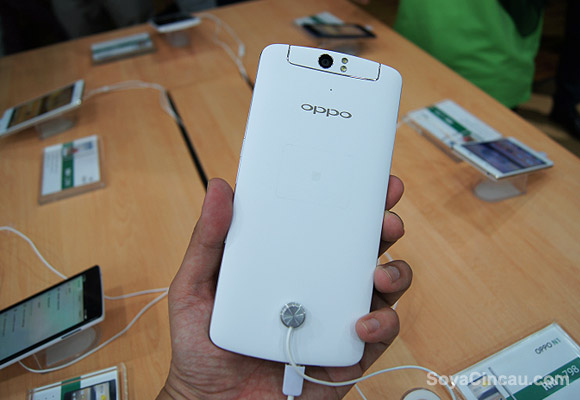
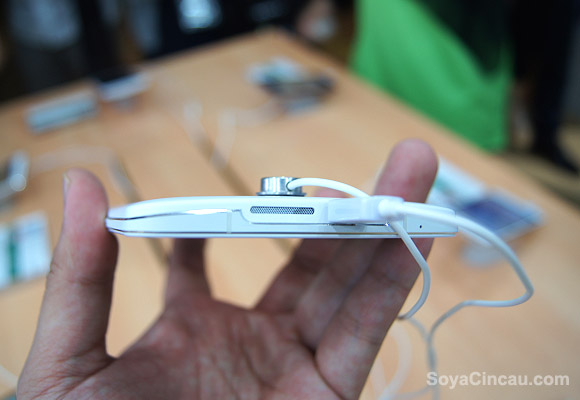
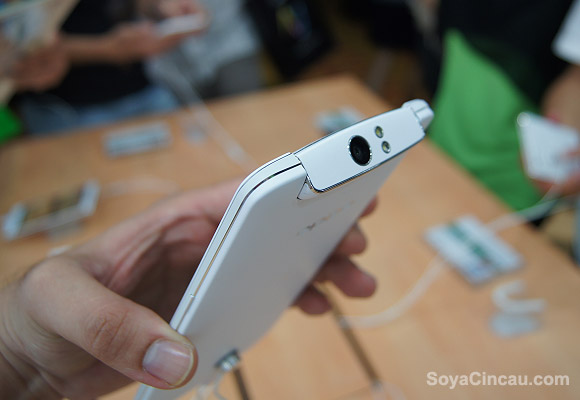
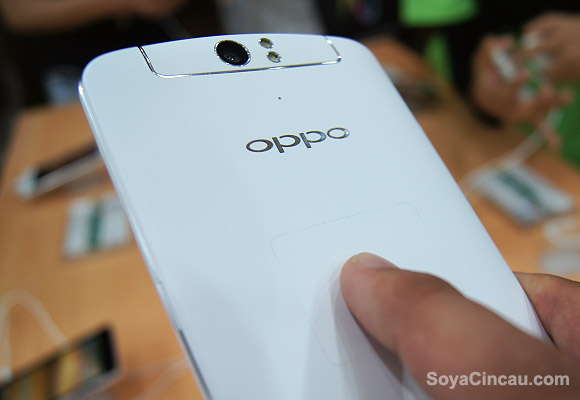
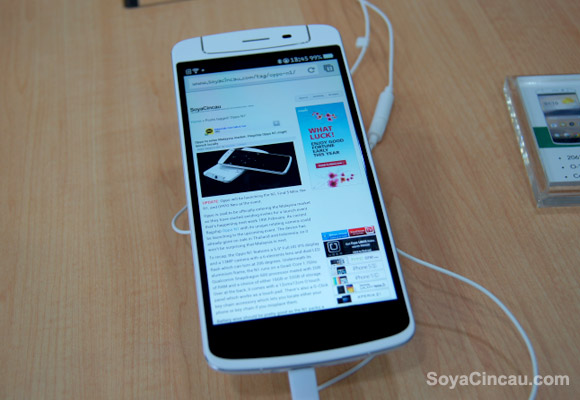
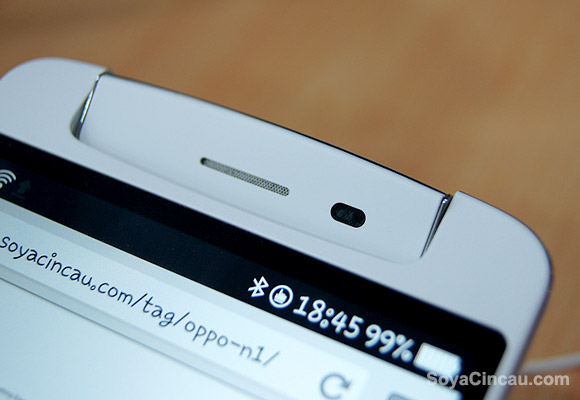
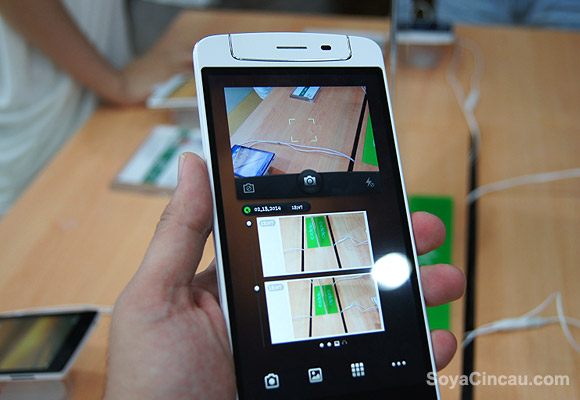
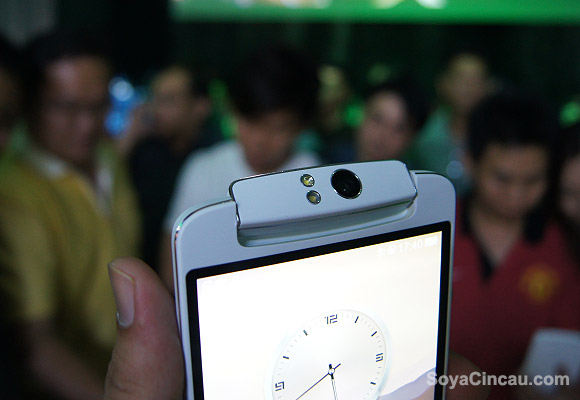
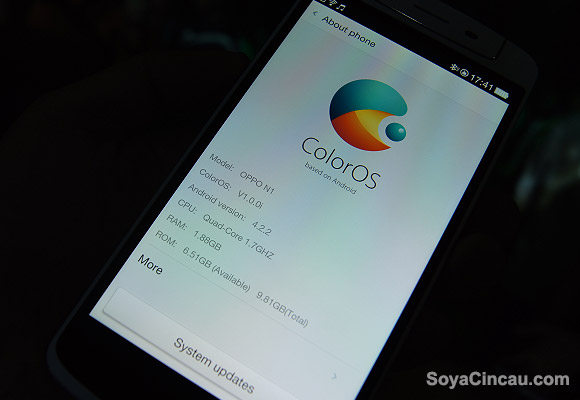
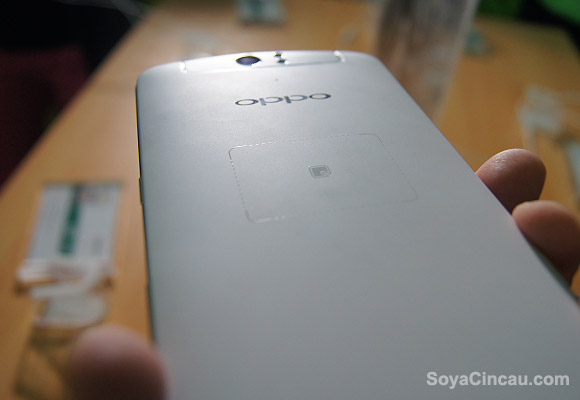
Oppo N1 UI Screenshots
